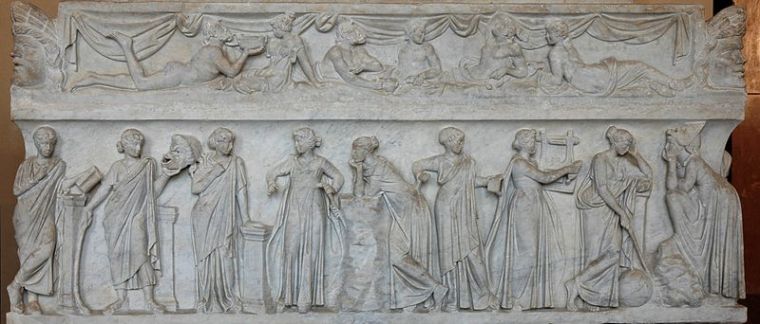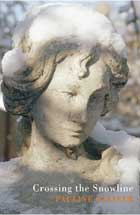FYI: Fellowships and Poetry Prizes for Young Poets

.
The Poetry Foundation is pleased to announce a $1.2 million gift from the Dorothy Sargent Rosenberg Memorial Fund to support the work of aspiring young poets. The Memorial Fund has awarded the prestigious “Dorothy Prizes” to young poets since 2004, and the Poetry Foundation has offered the Ruth Lilly Poetry Fellowships to young poets since 1989. With this new endowment, the current $15,000 Ruth Lilly Poetry Fellowship prize will nearly double, thereby giving five young poets a more auspicious start to their careers. The newly enhanced prize will be named the Ruth Lilly and Dorothy Sargent Rosenberg Fellowships, honoring two extraordinary women and their commitment to poetry. The first of these new fellowships will be announced and awarded in 2014.
“The Poetry Foundation is thrilled to begin this important fellowship program with a poetry organization that shares our dedication to and support of promising young poets,” said John Barr, president of the Poetry Foundation. “Some of our most noted poets writing today are Lilly Fellowship recipients who have benefited from being given the time to work and the confidence that this prize engenders.”
The Dorothy Prizes—officially the Dorothy Sargent Rosenberg Annual Poetry Prizes—were established by Dorothy’s husband, Marvin Rosenberg, playwright and acclaimed Shakespeare scholar, in memory of his wife, herself a published poet. Over the past nine years more than 350 prizes, ranging from to $1,000 to $10,000, have been awarded to fine young writers under the age of 40. Entries for this year’s upcoming contest are due on or before October 5.
“Now it is time for the balance of Marvin’s bequest to be deployed in a long-lasting way for the benefit of young poets,” said Barr Rosenberg, Marvin and Dorothy’s son and trustee of the Memorial Fund. “We are delighted to make this gift on Marvin’s behalf to the Poetry Foundation, so that the funds can continue to be dedicated to Marvin’s long-held dream of giving encouragement and substantial financial support to promising young writers. This is exactly what Marvin would have wished.”
“This gift adds another dimension to Ruth Lilly’s legacy of encouraging young writers at a crucial time in their careers,” said Don Share, editor of Poetry magazine. “It will provide more support for each poet and help to sustain a more diverse spectrum of writers.”
The Ruth Lilly Poetry Fellowships have encouraged the further writing and study of poetry among such esteemed poets and Fellowship recipients as Katherine Larson, Roger Reeves and Christian Wiman. The first Ruth Lilly Poetry Fellowship winner, Saskia Hamilton, has gone on to author several books of poetry and was named a Guggenheim Fellow in 2009. She now edits the journal Literary Imagination.
The success of the Dorothy Prizes can be seen in the consistently high quality of the lyric poetry submitted. Names of honorees, their winning work and a selection of Dorothy’s own poems can be viewed online. This year’s contest will be the last administered by the Rosenbergs, but they hope that the Dorothy Prizes may continue to flourish in the future. Individuals or organizations interested in taking over the administration of the Dorothy Prizes in 2014 are invited to be in contact with proposals via the Dorothy Prizes website.
* * *
About the Poetry Foundation
The Poetry Foundation, publisher of Poetry magazine, is an independent literary organization committed to a vigorous presence for poetry in our culture. It exists to discover and celebrate the best poetry and to place it before the largest possible audience. The Poetry Foundation seeks to be a leader in shaping a receptive climate for poetry by developing new audiences, creating new avenues for delivery, and encouraging new kinds of poetry through innovative literary prizes and programs. For more information, please visit poetryfoundation.org.
About Poetry Magazine
Founded in Chicago by Harriet Monroe in 1912, Poetry is the oldest monthly devoted to verse in the English-speaking world. Monroe’s “Open Door” policy, set forth in Volume 1 of the magazine, remains the most succinct statement of Poetry’s mission: to print the best poetry written today, in whatever style, genre or approach. The magazine established its reputation early by publishing the first important poems of T.S. Eliot, Ezra Pound, Marianne Moore, Wallace Stevens, H.D., William Carlos Williams, Carl Sandburg and other now-classic authors. In succeeding decades it has presented—often for the first time—works by virtually every major contemporary poet.
– Poetry Foundation
Photo credit ~ Photographer unknown. The Muses Sarcophagus, which depicts the nine muses and their attributes. It was carved in marble around the first haf of the second century and by the Via Ostiense. The photograph is in the public domain. The sarcophagus in house at the Louvre Museum in the Department of Greek, Etruscan and Roman antiquities, Denon wing, ground floor, room 25




